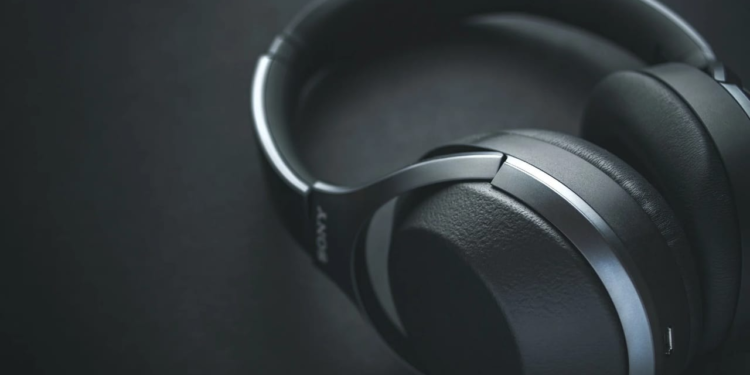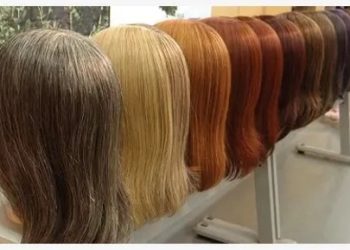A lot of individuals desire to have headphones that will provide them with tranquility in places with heavy noise and movement. This is the reason why wireless headphones and noise-cancellation headphones are well-liked. They allow you to listen to music, watch videos, or do nothing without using wires, and eliminate background noise. This guide will show what these headphones do, their benefits and dangers, and how you can choose the right one.
What Are Wireless Headphones & Noise Cancellation Headphones?
- Wireless headphones are headphones that work without wires. They use Bluetooth or another signal to connect to your phone, computer, or TV. No wire means less tangling and more comfort.
- Noise cancellation headphones use two methods:
- Passive noise isolation – using thick pads, closed ear cups, or a good seal to block sound physically.
- Active Noise Cancellation (ANC) – small microphones listen to outside sound and create a sound wave that cancels it.
- Passive noise isolation – using thick pads, closed ear cups, or a good seal to block sound physically.
Together, a pair that is both wireless and supports noise cancellation gives both comfort (no cable) and quiet (less outside noise).
How Do They Work?
Here is a simple idea of how noise cancellation headphones work, especially in a wireless model:
- Tiny microphones on the earpiece hear outside noise (traffic, engine, air‑conditioner).
- A tiny chip creates an opposite sound wave (“anti‑noise”) at the same frequency.
- That opposite sound meets the outside noise and cancels much of it.
- You hear mostly your music, podcast, or nothing at all — whatever you want — without needing to increase volume.
But they are better with steady, low sounds — like hums or rumble. They struggle more with sudden loud noises.
Benefits of Wireless Noise Cancellation Headphones
Here are things many users like:
- Quiet sound at lower volume — Because outside noise is blocked, you don’t have to raise the volume too high. Good for your ears.
- Freedom from wires — Move freely, sit anywhere, no wires pulling or tangling.
- Better focus — In noisy offices, public transport, or busy cafes, you can concentrate more.
- Travel comfort — On flights, buses, and subways, these headphones reduce engine noise and background chatter, so it’s easier to relax or sleep.
- Good for sensitive users — People who are sensitive to noise, including those with autism or sensory issues, often find relief using these to reduce stress.
Things to Be Careful About
Using wireless headphones with noise cancellation is great, but there are some things to watch:
- If you keep the volume too high, it might still damage your hearing. Even with noise-cancelling, loud audio is harmful.
- Some people feel pressure or a “blocked ears” feeling because of ANC. If that bothers you, try a model with milder ANC.
- Battery life drops when ANC and wireless features are both in use. You might need to charge often.
- They can be heavy or warm for long wear. Good fit and padding matter.
- When walking on the street or doing something where you need to hear outside, too much noise cancelling can be dangerous (missed traffic, etc.).
How to Pick the Right Wireless Noise Cancellation Headphones
Here are simple tips to help choose good ones:
- Comfort — soft ear cups, good cushion, adjustable headband
- Battery — aim for at least 20‑30 hours with ANC on
- Sound quality — good bass, balance, clear highs
- Ambient or transparency mode — lets you hear outside when needed (for safety)
- Good Bluetooth version and stable connection — fewer dropouts or delays
Also, check reviews, try them if possible, note how heavy they are, put them on your ears, etc.
3 Common Questions
1. Can noise-cancellation headphones hurt your ears?
They can if you misuse them. If you listen too loudly for many hours without breaks, it can strain your ears. But used sensibly — moderate volume, regular breaks — they are safer because you don’t have to raise volume to beat outside noise.
2. Are wireless headphones with noise cancellation good for flights?
Yes, they are really good for flights. They reduce the loud engine rumble, make cabin noise softer, and let you rest or watch a movie in peace. Just ensure the battery lasts long, and has comfortable padding, because you’ll wear them for many hours.
3. Better cheap wireless noise cancellation headphones or high-quality ones?
The cheaper ones may remain good but have trade-offs: reduced noise-cancelling performance, reduced battery life, reduced comfort, or even reduced construction. High-quality brands tend to offer superior ANC, superior sound, and higher comfort at a higher price.
Conclusion
If you want comfort and quiet, wireless headphones and noise cancellation headphones are a great combo. They let you enjoy sound without wires and reduce outside noise that can bother you. For everyday use — travel, study, work, rest — they bring real benefits.
But choose carefully: go for comfort, safe volume, good battery, and features like ambient mode. Don’t overuse them or crank up the volume. If you do things right, they become useful tools, not risks.











































































